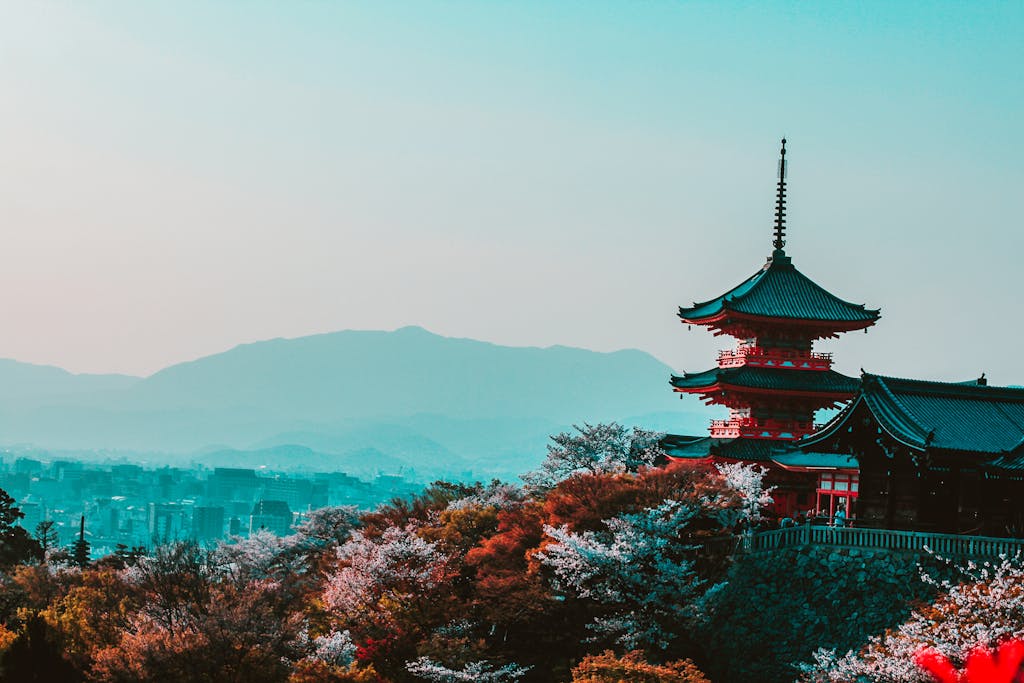7 Ways Of Japanese Values That Can Change Your Life
Ready for a life makeover, Japanese style? First, find your Ikigai – your reason to jump out of bed each morning. Not big on change? ‘Shikata ga nai‘, or ‘it can’t be helped’, will teach you to roll with the punches. Forget perfection and revel in the messy beauty with Wabi-sabi. Still whining? Try Gaman: enduring hardship with grace. Kaizen is your friend for constant self-improvement. Intrigued? Stick around and get enlightened – there’s more where that came from!
Key Takeaways
- Embracing Ikigai can guide your actions, providing a sense of purpose and enhancing personal happiness.
- Implementing Shikata ga nai in your life can help you gracefully accept situations as they are, focusing on what can be controlled.
- Adopting Wabi-sabi allows you to appreciate beauty in imperfection and transience, leading to contentment in the present moment.
- Practicing Gaman, the art of endurance, can provide you with the strength to withstand hardship without complaint, building resilience.
- Incorporating Kaizen, the principle of continuous improvement, can assist you in constantly evolving and becoming a better version of yourself.
Ikigai
Embracing Ikigai, a fundamental value in Japanese culture, can greatly enhance your life’s purpose and happiness. So what’s ‘Ikigai’? It’s like your personal GPS for life, but instead of ‘turn left at the next intersection,’ it’s more like ‘do what you love and you’ll never work a day in your life.’
You’ve got four elements to juggle here: what you love, what you’re good at, what the world needs, and what you can be paid for. Sounds like a tough balancing act? Well, it’s not a walk in the park, but it’s worth it. Imagine waking up every day with a clear sense of purpose. You’re not just living – you’re thriving!
Shikata ga nai
While finding your Ikigai can indeed be transformative, there’s another Japanese concept that might help you handle life’s trials more gracefully: ‘Shikata ga nai‘. This phrase, loosely translated, means ‘it can’t be helped’ or ‘nothing can be done about it’. It’s a way of acknowledging that some things are beyond your control, and that’s perfectly okay.
Imagine you’re stuck in a traffic jam when you’re already running late. Instead of fretting and fuming, try saying ‘Shikata ga nai’. Accepting the situation as it’s can be incredibly liberating. This mindset doesn’t mean you’re giving up, but rather that you’re choosing not to waste energy on things you can’t change.
‘Shikata ga nai’ also encourages you to focus on the things you can influence. Instead of worrying about the rain ruining your picnic, focus on creating an indoor picnic experience. It’s all about perspective and focusing on the upside.
In a world filled with variables and unpredictability, ‘Shikata ga nai’ can be your calming mantra. So next time life throws a curveball your way, remember, ‘Shikata ga nai’ – it’s out of your hands, and that’s just fine.
Wabi-sabi
Delving into the heart of Japanese aesthetics, you’ll uncover the concept of ‘Wabi-sabi‘, a worldview that finds beauty in imperfection and transience. Sounds like a breeze, doesn’t it? If you’re tired of pursuing perfection, this might be the game-changer you need.
Wabi-sabi is all about embracing the natural cycle of growth and decay, about seeing the beauty in the worn, the decaying, the asymmetrical. It’s like choosing a gnarled, old tree over a flawless plastic one. Think about it. Isn’t there something entrancing about an old, worn-out pair of boots or a hand-me-down sweater that’s seen better days? That’s Wabi-sabi for you!
It’s not just about material things. It’s a perspective shift. You’re ditching the ‘newer is better’ mentality and appreciating the beauty of time’s handiwork. It’s about finding contentment in the moment, in the now, and not constantly aiming for the next best thing.
Gaman
Building on the acceptance of imperfection inherent in Wabi-sabi, there’s another Japanese value that can be transformative: ‘Gaman‘. Gaman, my friend, is the art of endurance, the ability to withstand hardship without complaint. It’s like being a rock in a storm, standing firm while the winds of life try to blow you off course.
You see, in Japan, they don’t just sit around whining when things get tough. No, they buckle down and get through it with grace and stoicism. It’s not about denying feelings or bottling up emotions, but about finding the strength to persist, even when things are hard.
Think about it. How many times have you complained about your iced coffee not being cold enough or your internet being too slow? Now, imagine applying Gaman to those situations. Instead of getting frustrated, you’d find the resolve to endure. You’d shrug off the minor inconvenience and get on with your day.
Kaizen
Shifting gears, let’s explore ‘Kaizen‘, a Japanese principle that encourages continuous enhancement in all aspects of life. Imagine always pushing for better, whether it’s your job, relationships, or that irritating habit of misplacing your keys. That’s Kaizen for you!
So, how do you apply Kaizen in your life? It’s simple. Start by identifying areas you want to improve. Maybe it’s your cooking skills, or perhaps you’re aiming to be more punctual. Whatever it is, set a goal and work towards it, bit by bit, day by day. Don’t try to do everything in a day; it’s about gradual, continuous enhancement. Remember, Rome wasn’t built in a day!
Now, this doesn’t mean you should stress yourself out. You’re not expected to become a Michelin star chef overnight. But you can start by learning to make a decent omelette. Similarly, if you’re always late, try leaving five minutes earlier. It’s about making small, manageable changes that add up over time.
Embrace Kaizen, and you’ll find yourself constantly evolving, improving, and, dare we say, becoming a better version of yourself. Now, isn’t that a life-changing principle worth adopting?
Shu-Ha-Ri
After embracing the practice of Kaizen, you might find another Japanese concept, Shu-Ha-Ri, particularly intriguing. Now, don’t get scared, it’s not a sushi roll or a type of martial arts move. It’s a three-step process that could seriously revolutionize the way you learn.
Shu, the first stage, is all about learning the rules. You’re in the classroom, the dojo, the art studio, and you’re soaking up knowledge. You’re a sponge, not a rebel. No breaking rules, just following them.
Next is Ha, the second stage. Now, you’ve got the rules down pat and it’s time to mix things up. Start questioning, experimenting, and yes, even breaking those rules. It’s a bit like being a teenager all over again.
Mono no aware
Diving deeper into Japanese philosophy, you’ll encounter ‘Mono no aware‘, a concept that invites a profound appreciation for the fleeting beauty of life’s ephemeral moments. It’s a tricky concept, but think of it as a heightened sense of awareness for the transitory nature of everything around you. You know, like that feeling you get when you notice the leaves changing color in fall. It’s beautiful, but also kind of sad because you know it won’t last.
‘Mono no aware’ encourages you to cherish these transient moments, not just observe them. It’s not about being all doom and gloom, thinking about how everything is temporary. Instead, it’s about celebrating the beauty of the now, appreciating the delicate balance of life and change. You’ve got to see the beauty in a single fluttering leaf, the fleeting smile of a stranger, or even the melting ice cream on a hot summer day. It’s the impermanence that makes these moments precious.
Frequently Asked Questions
What Is the Significance of the Japanese Value, ‘Ikigai’, in Popular Culture?”
“Ikigai,” a Japanese value, in popular culture signifies finding your life’s purpose. It’s a concept that encourages you to pursue what you love, what you’re good at, what the world needs, and what you can be paid for.
How Does the Concept of ‘Shikata Ga Nai’ Influence the Japanese Education System?”
“Shikata ga nai” can deeply impact your educational approach. It encourages acceptance of circumstances as they are. You’re taught to persist with diligence and patience, rather than trying to alter unchangeable situations.
Can Wabi-Sabi Be Applied to Interpersonal Relationships, or Is It Solely Focused on Physical Objects and Environments?”
Sure, you can apply wabi-sabi to relationships. It’s not just about physical things. By appreciating imperfections in others, you’ll foster deeper connections and find beauty in the natural ebb and flow of human interaction.
How Has the Principle of ‘Gaman’ Influenced Japan’s Response to Natural Disasters?”
You’re asking about ‘gaman,’ a Japanese value emphasizing endurance with dignity. It’s hugely influenced their disaster responses, as they’ve shown remarkable resilience, patience, and unity in face of calamities, without public panic or disorder.
Are There Any Notable Figures in Japanese History Who Exemplified the Concept of ‘Kaizen’?”
Yes, there are. Toyoda Sakichi, the founder of Toyota, exemplified ‘kaizen’. He’s renowned for his continuous improvements in machinery, basically living the ‘kaizen’ concept, which has greatly shaped Toyota’s success story.
Conclusion
So, there you have it, folks. Seven Japanese values to turn your life from a drab movie into a blockbuster. It’s not rocket science, just a sprinkle of Ikigai, a dash of Wabi-sabi, some Kaizen on the side, and voila! Life’s suddenly more flavorful.
Remember, change doesn’t happen overnight – it’s like watching paint dry. But hey, isn’t a masterpiece worth the wait? Just remember, it’s your canvas, so paint it the way you want.







